In this article
View 8 More +The Yorkshire Terrier is one of the top 10 most popular breeds year after year due to their attractive personality and small size, which makes them well-suited to apartment living. If you have been thinking about getting one of these amazing dogs but would like to know more about them first, keep reading as we look into their temperament, appearance, grooming needs, and common health problems to help you determine if they are right for you.
Breed Overview
Height:
7–9 inches
Weight:
3–7 pounds
Lifespan:
11–15 years
Colors:
Blue and tan, black and tan, blue and gold, black and gold
Suitable for:
Large and small homes, single pet owners, and families
Temperament:
Affectionate, lively, social
The Yorkshire Terrier, or Yorkie, is a small dog with a long, silky coat that helps the breed stand out. While the coat requires regular maintenance, they don’t shed excessively, which might help reduce the risk of allergic reactions for some people. They are confident and alert, which can make them effective watchdogs, and they are easy to train due to their high intelligence, so they can be good companions for older adults.
Yorkshire Terrier Characteristics

Yorkshire Terrier Puppies
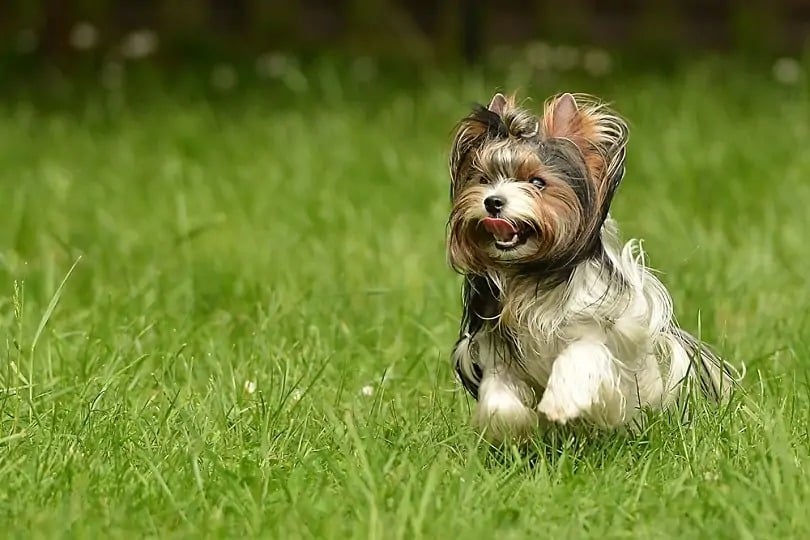
Yorkshire Terrier puppies are undeniably adorable due to their tiny size, which contrasts with the huge amount of curiosity that they have. Helping them grow into adulthood can be an entertaining yet stressful job. They require plenty of socialization to feel comfortable around other people and animals when they are older, and it’s also a good idea to get them used to different environments and places so they don’t bark excessively whenever they leave the house.
Finding a breeder shouldn’t be too difficult, depending on where you live, as they are one of the most popular dogs. However, it’s important to do your research and select a qualified breeder who follows standards and puts the dogs’ health ahead of profits. Avoid breeders who don’t provide registration papers, as they may not have the right to breed the Yorkshire Terrier.
Temperament & Intelligence of the Yorkshire Terrier 🧠
Yorkshire Terriers often develop a deep affection for their owners and will seek out cuddles, especially when you are relaxing indoors. However, they are also extremely playful and are ready to go at a moment’s notice. Their confident nature won’t allow them to back down from any threat, including dogs many times their size, and they are quick to hear strange and unfamiliar sounds, so they can be a good watchdog.
The Yorkshire Terrier is extremely intelligent and can pick up on new commands quickly, making them easy to train, even for first-time pet owners. They respond well to positive reinforcement and are easy to please.
Are These Dogs Good for Families? 👪
The Yorkshire Terrier can be a good family pet as long as any smaller children understand how delicate they are, since rough handling can easily lead to injury. However, they have a great deal of energy, so a larger family can help them get the exercise that they need. They are friendly and easy to train, which can make them a great addition to any family.
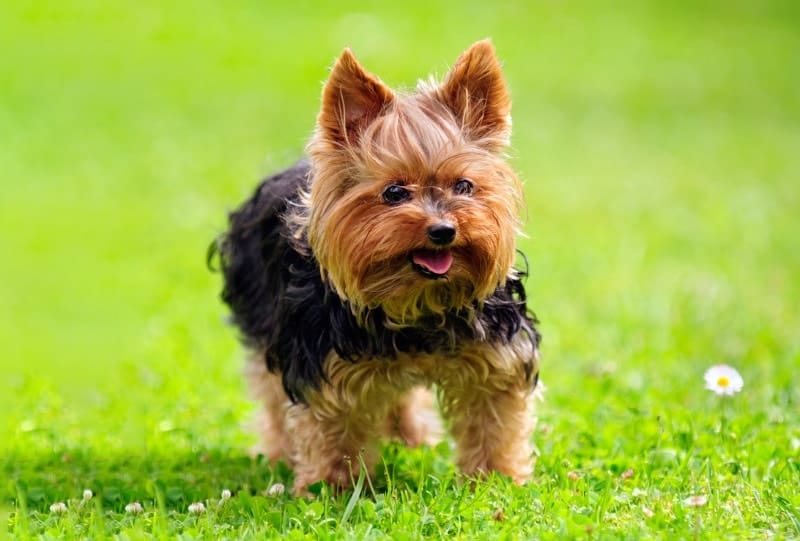
Does This Breed Get Along With Other Pets? 🐶 😽
Most Yorkshire Terriers will get along with other pets, especially if they get plenty of socialization with them as a puppy. However, every dog has a unique personality, and some will get along with other animals better than others.

Things to Know When Owning a Yorkshire Terrier
Food & Diet Requirements 🦴
Your Yorkshire Terrier will need a high-quality dog food appropriate for their age that features real meat like chicken or turkey listed as the first ingredient. Avoid table scraps, as these can contain ingredients that might be unhealthy for your dog. Watch portion control to avoid weight gain, and ensure that there is always plenty of fresh, clean water available. Consult your veterinarian if you have any questions about setting up a diet for your pet to get advice tailored to your pet.

Exercise 🐕
The Yorkshire Terrier has a large amount of energy, but it isn’t hard to ensure that they get enough exercise each day. A few short walks daily combined with interactive play can go a long way toward helping them maintain good body weight and burn off excess energy that might keep them up at night and misbehaving. You can also provide mental stimulation through puzzle games and obedience training.
Training 🎾
Training a Yorkshire Terrier can be a wonderful experience because they are intelligent dogs that can learn quickly, enabling you to teach them many tricks. For the best results, start early while your pet is still a puppy, and keep your training sessions short, scheduled, and consistent to help create a routine that your pet can get used to. Doing so will allow you to train your dog more successfully into adulthood. Start with basic commands, like sit and stay, before moving on to more complex ones, and use plenty of positive reinforcement to help keep your pup interested and having fun.
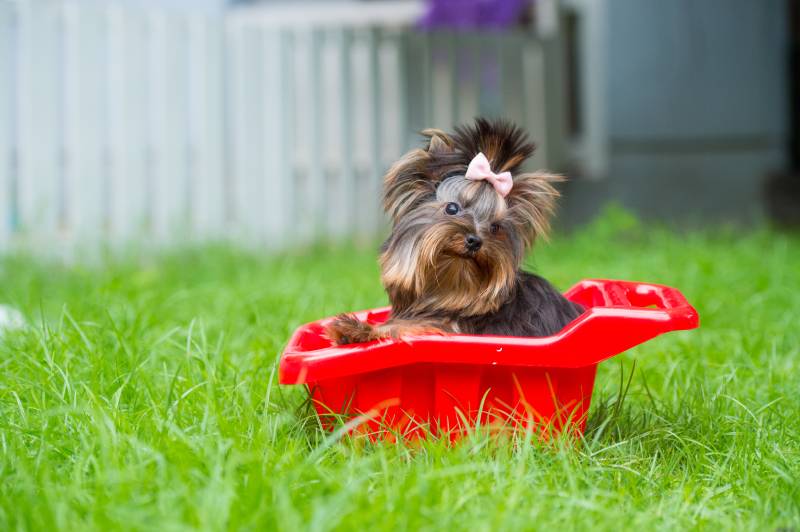
Grooming ✂️
Grooming is an essential part of caring for a Yorkshire Terrier due to their long, silky coat. Regular brushing will help prevent matting and tangles, and they may need a bath every 3–4 weeks with a high-quality shampoo to keep the fur looking its best. Regular trimming is also essential to maintain a coat length that suits your pet. Trim the nails when you hear them clicking on the floor, manually brush the teeth as frequently as possible, and check the ears frequently to ensure that they are clean and dry to reduce the risk of infection.
Health and Conditions 🏥
- A collapsed trachea is more common in toy breeds like the Yorkshire Terrier, and the signs can include a honking duck-like sound coming from your pet’s throat. It’s a serious condition that requires an immediate trip to the vet.
- Pancreatitis is a potentially life-threatening disease that doesn’t always have many early warning signs. It is an inflammation of the pancreas that can sometimes be the result of dietary indiscretions. Signs can include a hunched back, diarrhea, and fever.
- A luxating patella is a condition that causes the kneecap to slip out of place, which can cause pain and discomfort, leading to lameness in some cases.
- The Yorkshire Terrier can be prone to dental problems that can include tooth decay and gum disease. In fact, more than 80% of dogs across the United States have some form of it, so it’s important to schedule frequent dental checkups and manually brush the teeth as frequently as possible using dog-friendly
- Hypoglycemia, or low blood sugar, can be extremely dangerous, leading to loss of appetite, vomiting, and tremors, and it’s more common in small and toy breeds, like the Yorkshire Terrier. Blood tests can help the vet diagnose the disease, and medication can help you and your pet manage it.
Male vs. Female
Male Yorkshire Terriers are often more playful than females and can be more affectionate but also more territorial, especially around other animals. Females can be easier to train and tend to be more nurturing.

3 Little-Known Facts About the Yorkshire Terrier
1. Breeders created the Yorkshire Terrier to catch rats.
2. Their blue color starts out black at birth and gradually changes as the puppy becomes an adult.
3. During World War II, the Yorkshire Terrier was a popular mascot and companion for soldiers.
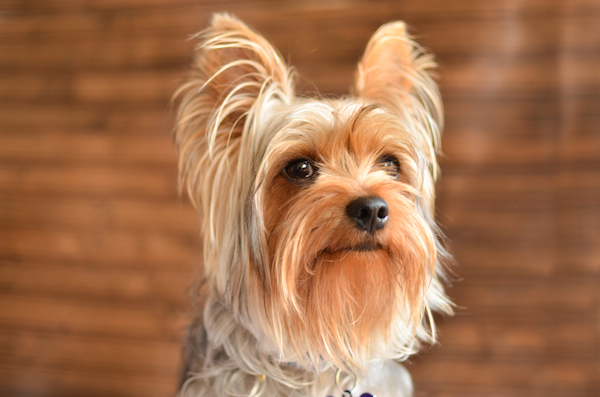

Conclusion
The Yorkshire is one of the most popular dogs in America, and it’s easy to see why. They are affectionate, form strong bonds with family members, and are intelligent enough to learn a wide variety of tricks. They get along with other pets, especially if they get plenty of socialization as puppies, and have a protective, alert nature that makes them great watchdogs. Their attractive fur is easy to maintain with regular brushing and trimming, and it shouldn’t be too hard to find a breeder, since they are so popular, though you might get put on a waiting list.
See also:
Featured Image Credit: Fernanda Nuso, Unsplash













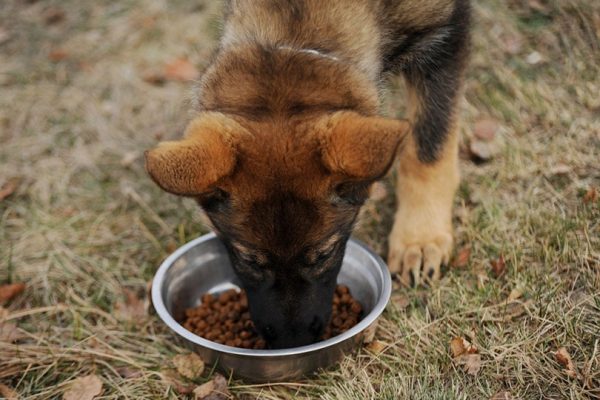
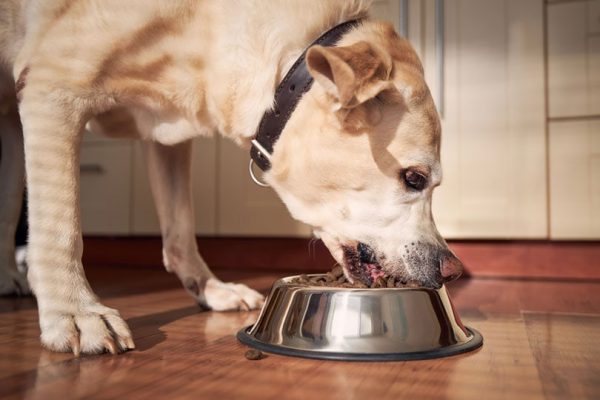







2 Responses
I would like to breed my dog
I found this article very informative as I am ready to purchase a puppy.